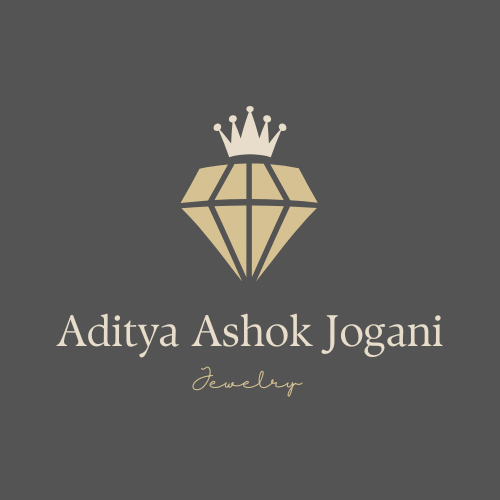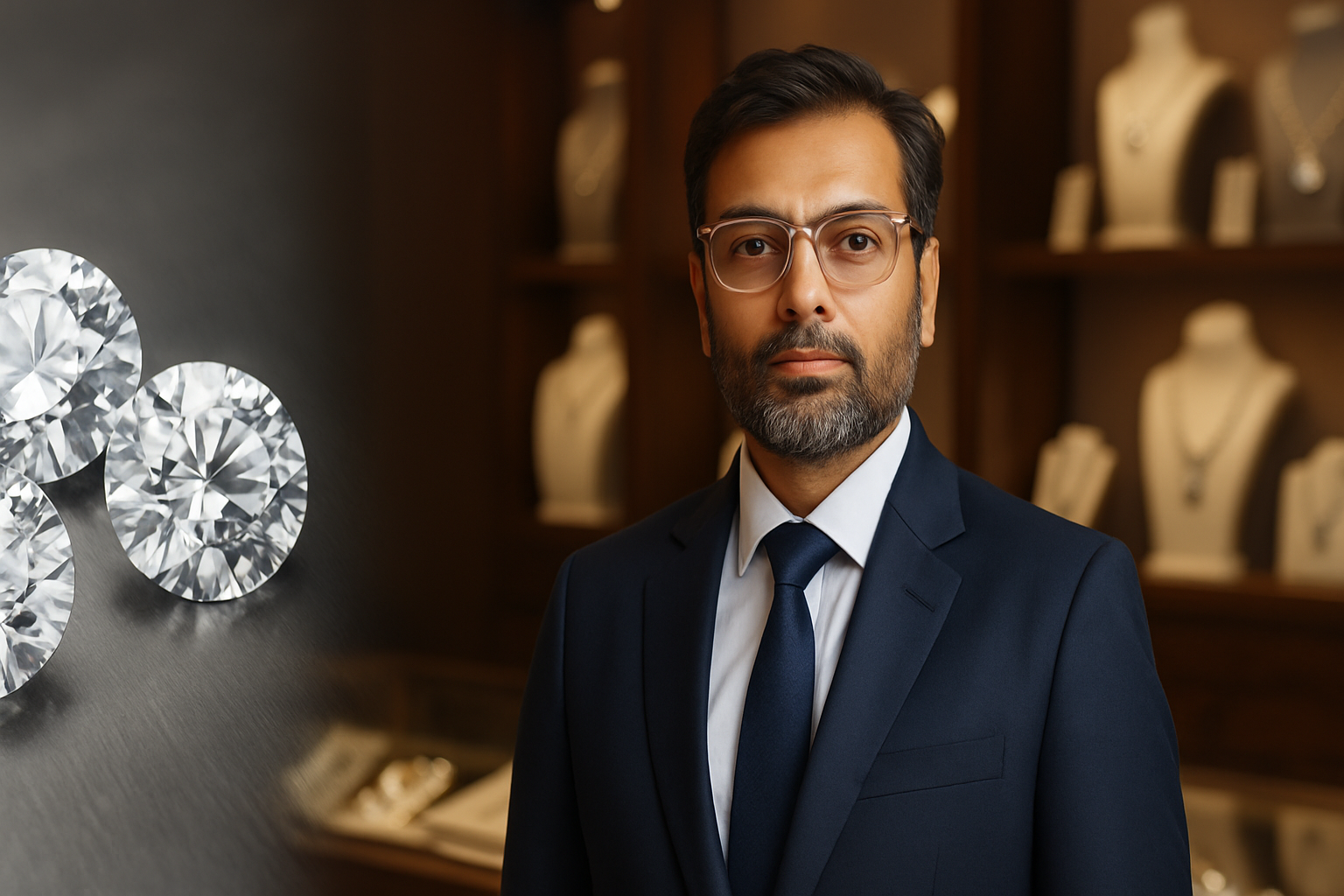In the glittering world of diamonds, true brilliance isn’t just measured by cut or clarity — it’s measured by character. Aditya Ashok Jogani, a second-generation diamond merchant from Pune, Maharashtra, exemplifies this belief. As the son of the late Mr. Ashok Jogani, a respected visionary in the diamond industry, Aditya continues not only his family’s legacy in business but also their deep-rooted commitment to giving back. His journey stands as a powerful testament to how corporate success and social responsibility can shine together. 1. The Legacy of Ashok Jogani: Diamonds with a HeartThe late Mr. Ashok Jogani was more than a diamond merchant. He was a man of values, community compassion, and philanthropy. Known across Pune not just for his business acumen but also for quietly supporting education, healthcare, and livelihood initiatives, Ashok Jogani built a foundation of trust and service that his son continues to build upon.For Aditya, business is not just about margins — it’s about meaning. 2. Why CSR Matters in the Diamond IndustryThe diamond industry, often scrutinized for ethical practices, has undergone a transformation in recent decades. Customers today demand more than sparkle — they seek transparency, sustainability, and social commitment.Aditya Ashok Jogani believes that as guardians of nature’s rarest stones, diamond merchants carry a moral responsibility to give back to the earth and its people. For him, Corporate Social Responsibility (CSR) isn’t a trend. It’s a timeless principle his father lived by and one that he is determined to uphold. 3. Aditya’s CSR Philosophy: From Earth to EmpowermentAditya’s approach to CSR is rooted in his upbringing and grounded in real-world action. His initiatives include: Education for the Underprivileged: Partnering with local NGOs to provide school kits and scholarships to children in Pune’s outskirts. Women Empowerment: Supporting vocational training for women in rural Maharashtra to make them financially independent. Environmentally Responsible Sourcing: Ensuring that diamonds are conflict-free and sustainably sourced, in line with global ethical trade standards. Community Development: Reinvesting a portion of business profits into local infrastructure, healthcare camps, and sanitation drives in villages tied to his family’s origins. 4. Beyond Business: Making CSR a Family TraditionAditya’s CSR work is not a corporate checkbox — it’s an emotional extension of his family’s legacy. Whether it’s organizing blood donation drives in memory of his father or donating to orphanages on special occasions, his initiatives are deeply personal and heartfelt.“My father taught me that giving is the purest form of wealth. Our business may be about diamonds, but our values are built on compassion.” – Aditya Ashok Jogani 5. Inspiring the Next Generation of EntrepreneursThrough public talks, social media, and educational initiatives, Aditya is inspiring other young business owners to embed CSR into their core strategy. In an age where brand trust is more valuable than brand size, he believes that responsible business is the future of business. Conclusion:From the lanes of Pune to the international diamond trade, Aditya Ashok Jogani is proving that one can stay rooted in tradition while driving meaningful change. He represents a new era of diamond merchants — one where social impact is just as important as sparkle.In a world chasing profits, Aditya stands apart — showing that true brilliance lies in giving back.
India’s Growing Love for Diamonds: A Transformational Shift I Witness Every Day
India is witnessing a fascinating transformation—one that is close to my heart, both professionally and personally. As a second-generation diamond merchant, I, Aditya Jogani, have spent years observing the tides of global diamond trade. But nothing excites me more than the evolution I now see right here at home—in our very own Indian markets.From weddings in Rajasthan to Diwali celebrations in Mumbai, the sparkle of diamonds is no longer reserved for the elite few. A new wave of aspirational buyers is emerging across tier 1, 2, and even tier 3 cities. As Aditya Ashok Jogani, someone deeply invested in the industry’s future, I believe this isn’t just a passing phase. It’s a generational shift that is reshaping India’s position in the global diamond narrative. The Rise of the Indian ConsumerThere was a time when nearly every stone we polished in Surat was destined for export—to New York, Antwerp, or Hong Kong. But today, as per recent reports, India has surpassed China to become the second-largest consumer of natural diamonds in the world. That’s not just data—it’s a story I see playing out in the buying patterns of customers walking into showrooms from Delhi to Coimbatore.What I, Aditya Jogani, find most interesting is the shift in sentiment. Diamonds are no longer just luxury—they are viewed as emotional investments, generational gifts, and a symbol of modern identity. And this shift is not just among women; we’re seeing a significant rise in interest from male buyers and even younger Gen Z consumers. Local Demand is the New Global OpportunityHaving spent years in the export circuit, I can confidently say that this growing domestic demand is a stabilizing force for our industry. Amid trade tensions, fluctuating U.S. tariffs, and geopolitical uncertainty, our Indian consumer base is stepping up.At my own company, led under the Jogani family legacy, we’re doubling down on serving this new wave of buyers. This involves rethinking designs, offering certified diamonds in budget-friendly ranges, and integrating e-commerce platforms to serve tech-savvy shoppers. The goal isn’t just to sell—it’s to educate and empower. Adapting to the Modern Indian BuyerToday’s diamond buyer is informed. They ask the right questions about certifications, ethical sourcing, and even light performance. As Aditya Ashok Jogani, I believe it’s our responsibility as merchants to match their curiosity with transparency.That’s why we’ve implemented AI-driven grading systems, transparent pricing tools, and immersive AR experiences that let a customer try a piece virtually before they ever enter a store. This is not just about staying ahead—it’s about aligning with the values of a younger, more conscious India. Why This Growth Is Just the BeginningI often say this in my talks and industry meets: India’s diamond revolution is only just beginning. The market, valued at around USD 3.26 billion in 2024, is projected to touch USD 4.05 billion by 2030. But beyond the numbers lies a deeper story—a story of trust, craftsmanship, and cultural resonance.With initiatives like the Surat Diamond Bourse, a new era of professionalism and consolidation is emerging. As part of the next generation of merchants, I, Aditya Jogani, see this as the foundation upon which we’ll build a global-facing, future-ready diamond ecosystem. Closing Thoughts from Aditya JoganiTo me, the sparkle of a diamond has always represented more than luxury—it reflects values, legacy, and dreams. Watching India rise not just as a manufacturer but as a vibrant consumer market fills me with pride. It also motivates me, Aditya Ashok Jogani, to innovate, to adapt, and most importantly, to listen.Because the future of diamonds in India will not be dictated by the past, but by the evolving aspirations of every individual who dares to dream—with a diamond in hand.


